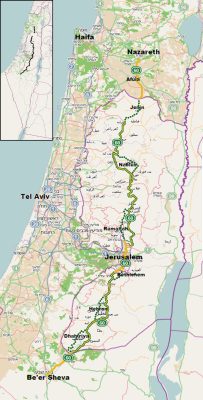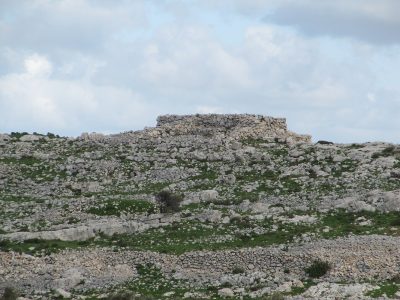
by: Janet Aslin, BFP Staff Writer
The nation of Israel is often misunderstood and misrepresented in the global media—many times deliberately. For example, when speaking of Israel’s efforts to bring an end to a deadly wave of terror attacks in Judea and Samaria, Minister of National Security Itamar Ben-Gvir made the comment, “The right to life precedes freedom of movement.” The outrage in the press was palpable. Ben-Gvir’s statement was interpreted—and communicated—as Israel punishing the Palestinians with increasing restrictions in the form of additional checkpoints in Judea and Samaria.

It became so intense that Prime Minister Benjamin Netanyahu issued a statement of explanation. “Israel allows maximum freedom of movement in Judea and Samaria for both Israelis and Palestinians,” he said. “Unfortunately, Palestinian terrorists take advantage of this freedom of movement to murder Israeli women, children and families by ambushing them at certain points on different routes.”
As we have witnessed a year of horrifying and deadly terror attacks perpetrated by Palestinians on the roads of Judea and Samaria, the underlying question becomes clear. That question really is an age-old one: “Do Jews have the right to exist?” And in this case, do Jews have the right to exist in the biblical heartland, the land where God promised to plant the Jewish people so they should no longer be uprooted (Amos 9:15)?
The name by which you refer to this specific region speaks volumes. Most of the world uses the term “West Bank,” a term coined in 1950 by the Kingdom of Jordan to refer to the area west of the Jordan River. Jordan occupied this land when a cease-fire was declared after Israel’s 1948 War of Independence and annexed it two years later. Use of the term West Bank deliberately removes any connection this land has to the Jewish people.
Much older and more accurate terms from a biblical perspective are Judea and Samaria. Judea is the Roman adaptation of the word Judah. Even earlier, the Assyrians provided the first known reference to a geographic location named “Judah” on a cuneiform dated 733 BC, over 2,700 years ago. The name Samaria is well documented in Scripture and was first used to refer to the capital and territory of Israel’s northern kingdom under King Omri in the ninth century BC.
Israel regained its biblical heartland after the 1967 Six Day War. The area is rich in Jewish history, as many important events took place there. From the patriarch Abraham up to the time of the Babylonian exile, sites of biblical significance abound. Consider Shiloh, where the Tabernacle stood for 369 years; Machpelah, the burial place of Abraham, Isaac, Jacob, Sarah, Rebecca and Leah; and Alon Moreh (near Shechem), where God promised to give the land to Abraham’s descendants (Gen. 12:6–7). I imagine you could choose just about any spot in Judea and Samaria and tie it to a biblical account.
However, there is an ongoing battle. The Palestinian Authority seeks to destroy archaeological sites and establish new “facts on the ground” by building on top of the ancient ruins. Just one example is the location of Joshua’s Altar on Mount Ebal, the site where Joshua fulfilled Moses’s instructions (Deut. 27:2, Josh. 8:30) after the Israelites had entered the Land. Two years ago, volunteers from “Preserving Eternity” were able to stop Palestinian plans to build a community on top of the altar, but this autumn, work began again. Once again, Jewish volunteers were able to halt the destruction, but constant vigilance is required or significant biblical sites will be lost forever.
Beyond the attempts to rewrite history and erase evidence of Jewish presence, there are also attempts to remove the Jewish residents themselves. Too often, the roads and highway junctions in Judea and Samaria have become death traps for innocent civilians and Israel Defense Forces (IDF) soldiers.
The Meir Amit Intelligence and Terrorism Information Center reported 129 critical terror attacks in Judea and Samaria in the first nine months of 2023. The institute defines a critical terror attack as, “involving shooting, stabbing, a vehicular attack, the use of IEDs, or a combination of the above. Stones and Molotov cocktails thrown by Palestinians are not included.”
In an article for the Jerusalem Center for Public Affairs, Yoni Ben Menachem wrote, “The Israeli security establishment is concerned about the spread of armed terrorist groups throughout Judea and Samaria equipped with large stockpiles of weapons and ammunition. There are about 20 armed terrorist groups carrying out attacks.”
The August 21 killing of Batsheva Nagari near Hebron brought the number of Jewish Israeli deaths in 2023 to 34. Although not all of these deaths have occurred in Judea and Samaria, some of the most violent and horrific have taken place there.
For instance, on April 7, Palestinian gunmen forced the car driven by Lucy Dee off the road. They opened fire, killing her two teenage daughters. Dee was critically injured and died several days later. She left behind her husband and three other children. Or the February 26 murder of 21-year-old Hallel and 19-year-old Yagel Yaniv as their vehicle was caught in a traffic jam in the Palestinian town of Huwara.
The roads and intersections of Judea and Samaria have indeed become deadly
The world is quick to condemn the Jewish families who choose to settle and build their homes in Judea and Samaria, effectively denying them the right to exist in the land of their inheritance. Yet they are fulfilling the promise of God as they dwell in the land He promised Abraham and his descendants—and He has the final say in the matter. The end of the story culminates with a resounding “Yes!” to the original question about Jewish right to exist.
“Thus says the Lord God: ‘When I have gathered the house of Israel from the peoples among whom they are scattered, and am hallowed in them in the sight of the Gentiles, then they will dwell in their own land which I gave to My servant Jacob. And they will dwell safely there, build houses, and plant vineyards; yes, they will dwell securely, when I execute judgments on all those around them who despise them. Then they shall know that I am the Lord their God’” (Ezek. 28:25–26 emphasis added).
Photo Credit: Click on photo for photo credit
Photo License: Route 60
Photo License: Joshua's Altar
All logos and trademarks in this site are property of their respective owner. All other materials are property of Bridges for Peace. Copyright © 2025.
Website Site Design by J-Town Internet Services Ltd. - Based in Jerusalem and Serving the World.